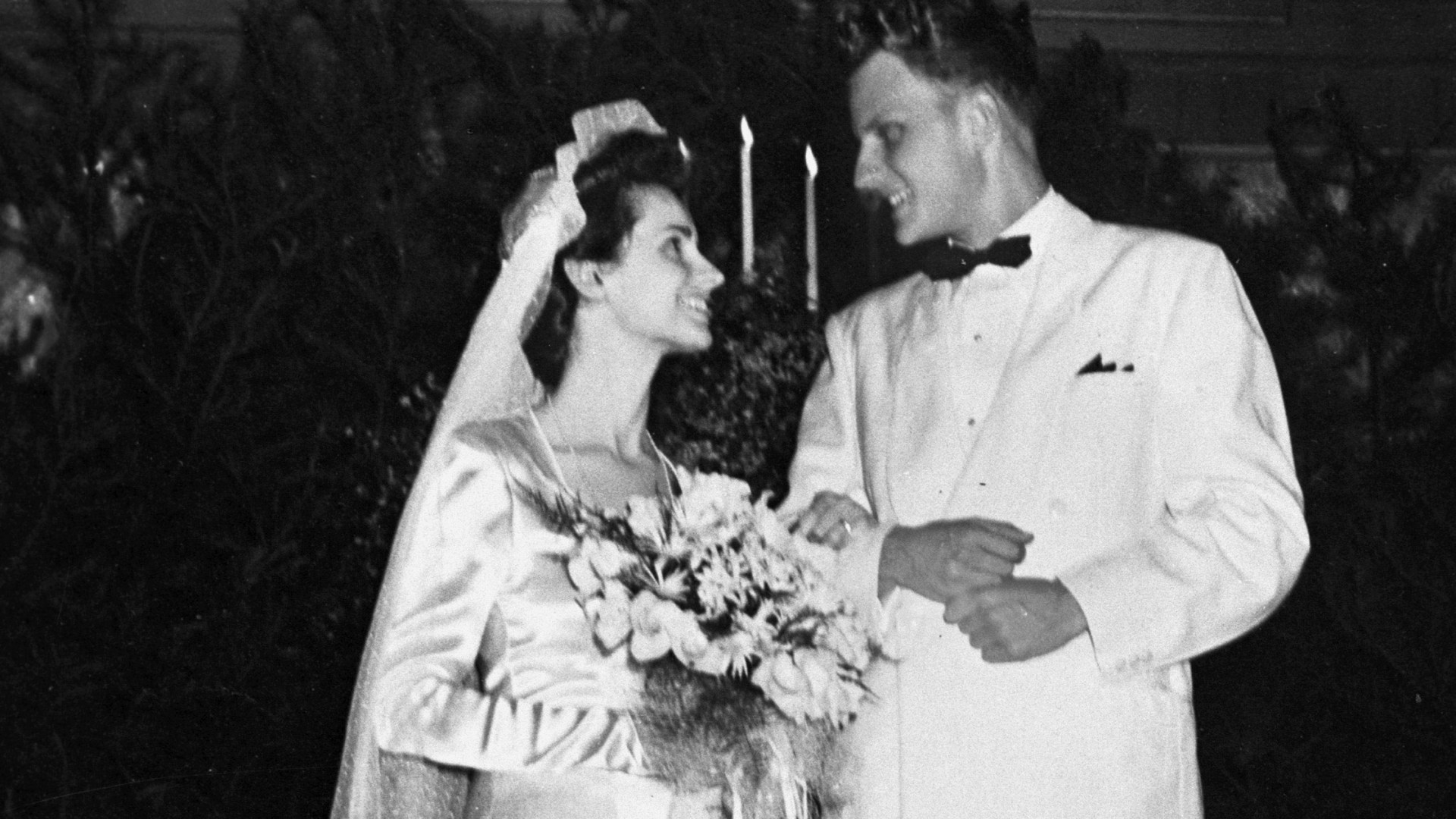The marriage of Ruth and Billy Graham presents certain challenges to any writer who would portray it. How to write about a couple so beloved by evangelicals without slipping into hagiography? How to write about a famous man and his wife while giving equal consideration to both spouses?
Hanspeter Nüesch, the national director of Campus Crusade for Christ in Switzerland, attempts this balancing act in Ruth & Billy Graham: The Legacy of a Couple (Baker Books). Despite some missteps along the way, this honest, straightforward book is an important addition to our understanding of the Grahams.
Nüesch offers regular reminders that Ruth and Billy, for all their godly qualities, were also sinners. They "were not perfect Christians," he writes. For example, "although she was a very sensitive person, Ruth at times could confront people very bluntly, to the point of irritating them. Billy had weaknesses in other areas. There were times when Billy confused American culture with the kingdom of God, as he himself later admitted."
But their weaknesses were often one side of a coin along with their strengths. Ruth's characteristic bluntness, for instance, could be grating—but it was also central to her giftedness in truth-telling and encouragement. She was honest about her opinions and her faith, which gave strength to many friends and family. And Billy's confusion of the kingdom of God with American culture owed in large part to his deep concern that American culture be godly.
Ruth & Billy Graham is not quite a conventional biography. Nor is it a memoir, even though the author recounts personal experiences with Billy and his daughter Gigi, who wrote the foreword. Nor is it a personal devotion, although there are moments of sermonizing. (Some of the book's weaker points appear when Nüesch spends pages pontificating rather than staying close to the story of the Grahams.) Instead, Nüesch frames the chapters around specific virtues that the couple embodied: partnership, authenticity, humility, intimacy, and so on. It is an innovative take on a story that has been written dozens if not hundreds of times.
Given the familiarity of the couple, this book could have been predictable. Yet it offers plenty of surprises. Ruth and Billy certainly kept traditional gender roles at home, but Billy also put himself under the teaching of a woman—Henrietta Mears, director of Christian education at the First Presbyterian Church of Hollywood. Nüesch quotes liberal theologian Harvey Cox (of Harvard Divinity School) to remind us that Billy was among the originators of "the return in America of an ecumenical, prophetic, and peacemaking evangelicalism." We learn, too, that Ruth's boldness and mischievous nature enlivened their family with creativity and joy.
Careful readers will notice that the book is full of repetition. Ruth (who died seven years ago this week; today would have been her 94th birthday) is called a "firecracker" at least twice by the same storeowner in Montreat, and Leighton Ford is introduced twice on the same page as Billy's "brother-in-law and theologian." And Nüesch sometimes goes overboard in stressing the Grahams' imperfections. We can appreciate Nüesch's willingness to acknowledge his subjects' flaws, but his gestures in this direction are often vague and lacking in nuance.
But overall, Nüesch has made a compelling case that Ruth and Billy's legacy as a couple surpasses even their individual legacies, formidable though they are. Ruth & Billy Graham makes a worthy contribution to our understanding of modern evangelicalism's first family.
Laura Turner is a writer in California and a contributor to Her.meneutics.











